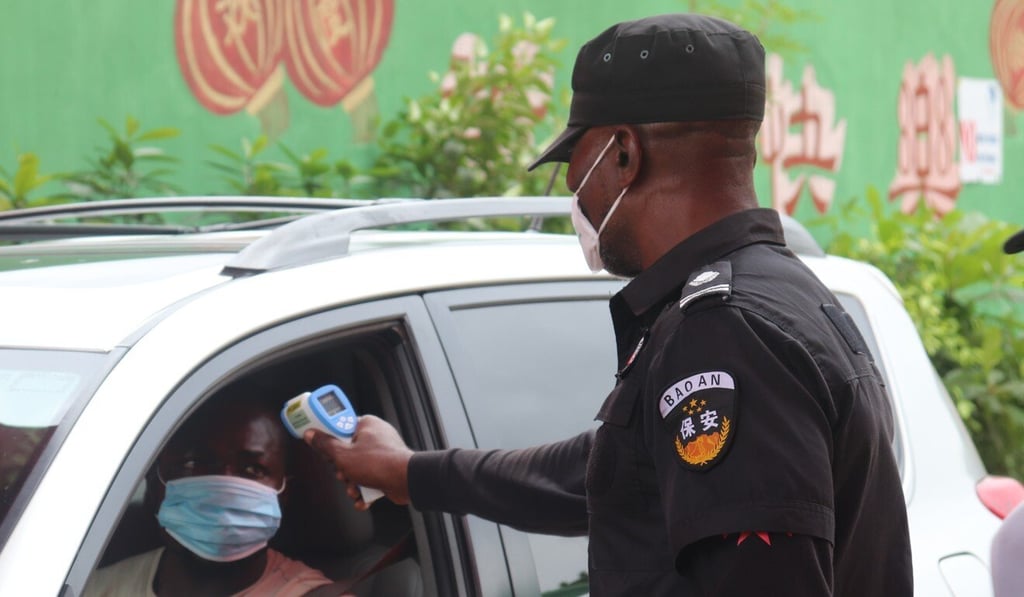Life after coronavirus lockdown in Nigeria’s Chinatown
- Pandemic a blow to Lagos Chinatown, normally a popular place for trade, food and gatherings
- Many Chinese expats are yet to return to Nigeria as Covid-19 impacts global travel

Nigerian and Chinese flags flutter in the morning breeze atop of the rampart of Chinatown in the city of Lagos. It’s a tall wall, modelled after the medieval Great Wall of China, painted red and fortified by bricks.
Its gate is half open, with three security officers with handheld thermometers checking temperatures of traders and customers coming in. Beside the gate, a water bucket, a bottle of hand sanitiser and liquid soap serve for routine handwashing while a few Chinese mingle in a terrace near the car park.
Inside the courtyard, only a few of the more than 200 shops selling trousers, shirts, perfume, laptops, ceramic coffee cups, shoes and travel bags are open. A handful of traders bargain with customers while others sleep or watch movies on their mobile phones. A few months ago, the scene would have been different: lively, noisy and crowded, traders say.

But things began to take a new shape when local authorities in Nigeria rolled out measures to curtail the spread of coronavirus, including restricting entry into the country for travellers from China and other nations around March. Traders say the restrictions, as well as a curfew and bans on interstate travel, nearly brought commercial activities to a halt in Chinatown.
The number of confirmed new coronavirus cases in Africa has topped the 1 million mark, with the death tally at more than 22,000, according to the World Health Organisation. Around 46,140 cases have been recorded in Nigeria, Africa’s most populous nation, as well as more than 940 deaths.